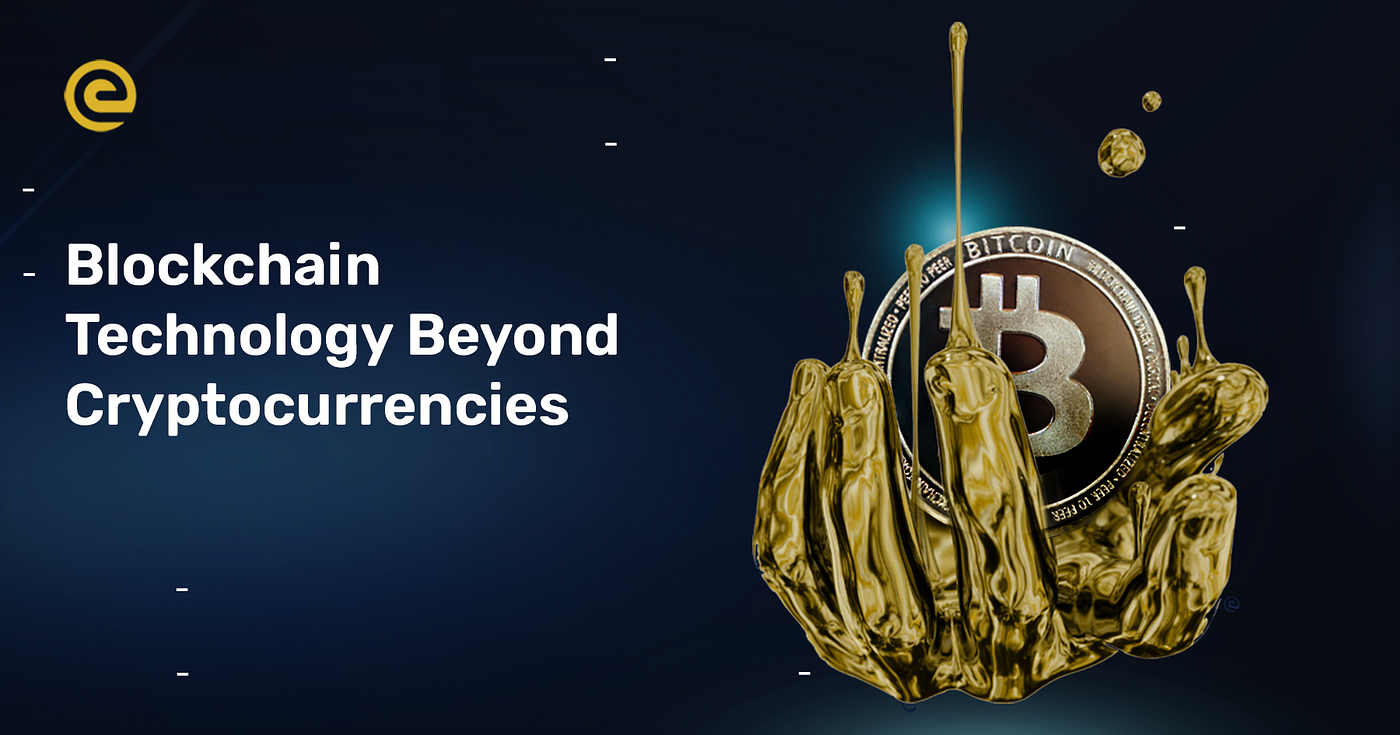Blockchain Technology: Beyond Bitcoin's Applications
Blockchain technology, initially recognized as the underlying framework for Bitcoin, has emerged as a transformative force in various industries. Beyond the realm of cryptocurrencies, blockchain technology is revolutionizing sectors by offering unprecedented levels of security, transparency, and efficiency. This article delves into the expansive applications of blockchain technology, exploring how it is reshaping finance, healthcare, supply chain management, and more.

What is Blockchain Technology?
Blockchain technology is a decentralized digital ledger that records transactions across a network of computers. Each block in the chain contains a list of transactions, and once a block is added, it cannot be altered without altering all subsequent blocks. This makes blockchain highly secure and resistant to fraud. The decentralized nature of blockchain means that no single entity controls the entire network, enhancing transparency and trust.
Blockchain in Finance
While Bitcoin introduced blockchain technology to the world, its potential in the financial sector extends far beyond cryptocurrencies. Here are some key applications:
1. Cross-Border Payments: Traditional cross-border payments are often slow and costly due to multiple intermediaries. Blockchain technology simplifies this process by enabling direct transactions between parties, reducing costs and increasing speed. Ripple, for example, uses blockchain to facilitate real-time cross-border payments and currency exchanges.
2. Smart Contracts: Smart contracts are self-executing contracts with the terms directly written into code. These contracts automatically execute when predefined conditions are met, eliminating the need for intermediaries and reducing the risk of fraud. Ethereum is a popular blockchain platform for developing and deploying smart contracts.
3. Fraud Prevention: Blockchain’s immutable and transparent nature makes it an effective tool for preventing financial fraud. By providing a permanent and tamper-proof record of transactions, blockchain reduces the risk of fraudulent activities, ensuring a more secure financial ecosystem.
4. Decentralized Finance (DeFi): DeFi leverages blockchain technology to create financial instruments without relying on traditional intermediaries like banks and brokers. This includes lending platforms, decentralized exchanges, and stablecoins, offering greater accessibility and transparency in financial services.
Blockchain in Healthcare
The healthcare industry is poised to benefit significantly from blockchain technology. Here’s how blockchain is transforming healthcare:
1. Secure Patient Data Management: Blockchain ensures the secure storage and sharing of patient data. By using a decentralized ledger, healthcare providers can maintain accurate and up-to-date patient records, improving patient care and data privacy. Patients can also have more control over their data, deciding who can access it.
2. Drug Traceability: Counterfeit drugs are a major issue in the pharmaceutical industry. Blockchain technology can track and verify the authenticity of drugs throughout the supply chain. This ensures that only genuine drugs reach consumers, enhancing safety and trust.
3. Clinical Trials: Blockchain can enhance the integrity and transparency of clinical trials by securely recording trial data. This ensures that data is accurate and tamper-proof, facilitating easier verification and analysis by researchers, regulatory bodies, and participants.
4. Health Insurance: Blockchain can streamline health insurance claims by automating the verification and approval processes through smart contracts. This reduces paperwork, speeds up claims processing, and minimizes fraud.
Blockchain in Supply Chain Management
Blockchain technology is making waves in supply chain management by enhancing transparency, traceability, and efficiency:
1. Enhanced Transparency: Blockchain provides a transparent and immutable record of transactions in the supply chain. This allows all stakeholders, including manufacturers, suppliers, and consumers, to track the movement of goods from origin to destination. Enhanced transparency helps in identifying and resolving issues quickly.
2. Improved Traceability: Blockchain enables real-time tracking of products as they move through the supply chain. This is particularly important in industries like food and beverages, where traceability is crucial for ensuring product safety and quality. By maintaining a tamper-proof record, blockchain ensures that any issues can be quickly traced back to their source.
3. Reduced Fraud: The security provided by blockchain technology helps reduce fraud in the supply chain. By offering a permanent and transparent record of transactions, blockchain makes it difficult for fraudulent activities, such as counterfeiting and document forgery, to go unnoticed.
4. Efficient Logistics: Blockchain can optimize logistics by providing real-time updates and accurate tracking of shipments. This improves inventory management, reduces delays, and enhances overall supply chain efficiency.
Blockchain in Other Industries
Beyond finance, healthcare, and supply chain management, blockchain technology is finding applications in various other sectors:
1. Real Estate: Blockchain can streamline real estate transactions by providing a transparent and immutable record of property ownership and transactions. This reduces the need for intermediaries like lawyers and brokers, speeding up the transaction process and reducing costs.
2. Voting Systems: Blockchain can enhance the security and transparency of voting systems. By providing a tamper-proof record of votes, blockchain ensures that the voting process is transparent and results are verifiable and accurate.
3. Intellectual Property: Blockchain can protect intellectual property rights by providing a transparent and immutable record of ownership. This ensures that creators can prove ownership of their work and receive fair compensation for its use.
4. Energy Management: Blockchain can facilitate peer-to-peer energy trading and optimize energy distribution. By using smart contracts, blockchain can automate and manage energy transactions efficiently, promoting renewable energy usage.
5. Government Services: Blockchain can improve the efficiency and transparency of government services by providing secure and transparent records of transactions and interactions. This includes land registry, identity verification, and public procurement.
The Future of Blockchain Technology
The potential of blockchain technology is immense, and its applications are only beginning to be explored. As technology continues to evolve, we can expect even more innovative uses of blockchain across various industries. However, for blockchain to reach its full potential, several challenges need to be addressed:
1. Regulatory Issues: The regulatory landscape for blockchain technology is still evolving. Governments and regulatory bodies need to develop clear guidelines and regulations to ensure that blockchain is used responsibly and ethically.
2. Scalability: Scalability is a significant challenge for blockchain technology. As the number of transactions on a blockchain increases, the system can become slow and inefficient. Researchers and developers are working on solutions, such as sharding and layer 2 scaling, to address these issues.
3. Interoperability: For blockchain technology to be widely adopted, different blockchain networks need to be able to communicate and interact with each other. Interoperability is crucial for creating a seamless and integrated blockchain ecosystem.
4. Public Perception: Public understanding and acceptance of blockchain technology are essential for its widespread adoption. Educating people about the benefits and potential of blockchain will play a crucial role in its future success.
Conclusion
Blockchain technology is much more than just the foundation of Bitcoin. It is a revolutionary technology that has the potential to transform various industries by enhancing security, transparency, and efficiency. From finance and healthcare to supply chain management and beyond, blockchain is poised to revolutionize the way we conduct transactions and manage data. As technology continues to evolve and overcome its challenges, the future of blockchain looks incredibly promising, offering endless possibilities for innovation and growth.


You must be logged in to post a comment.